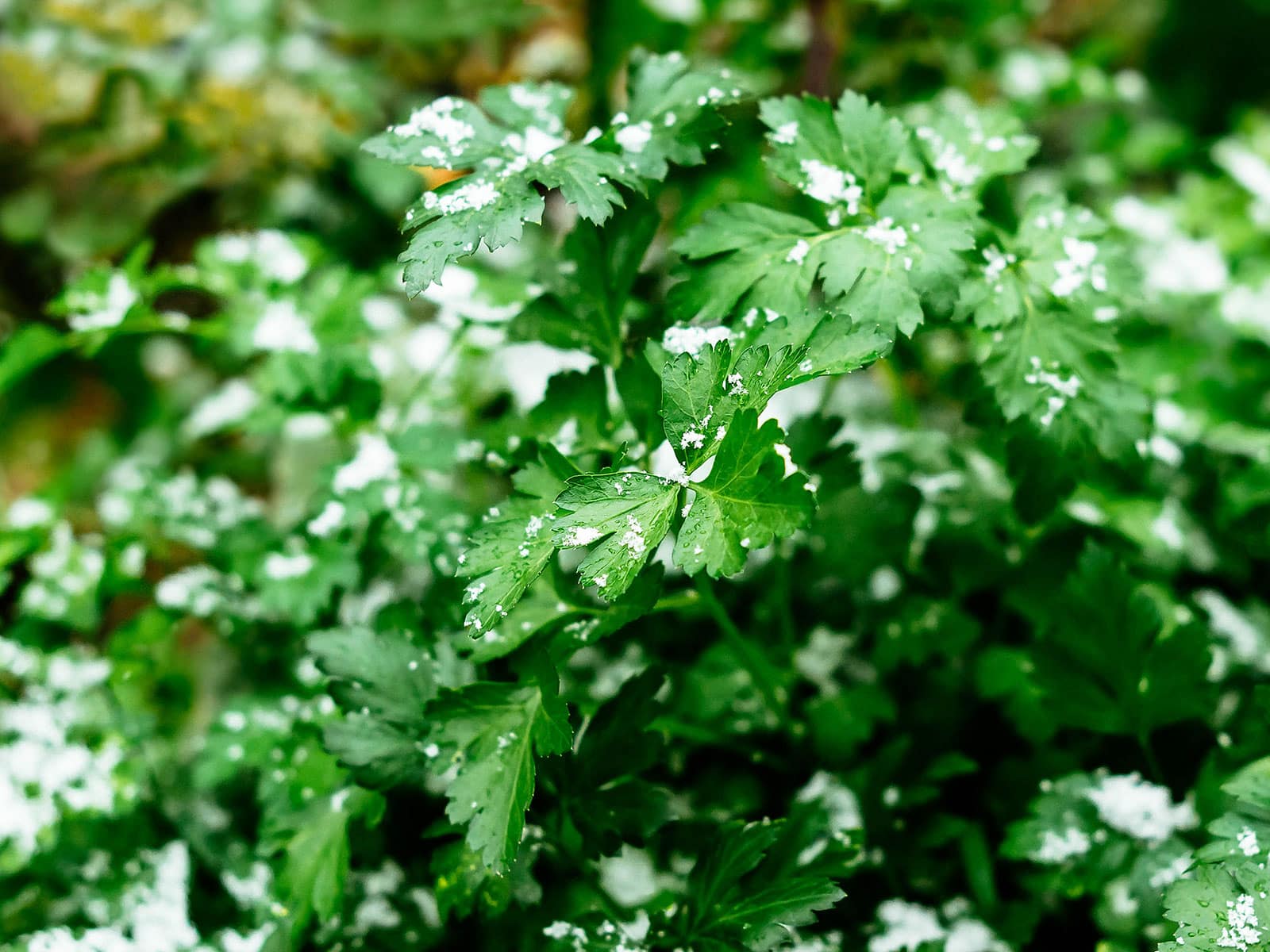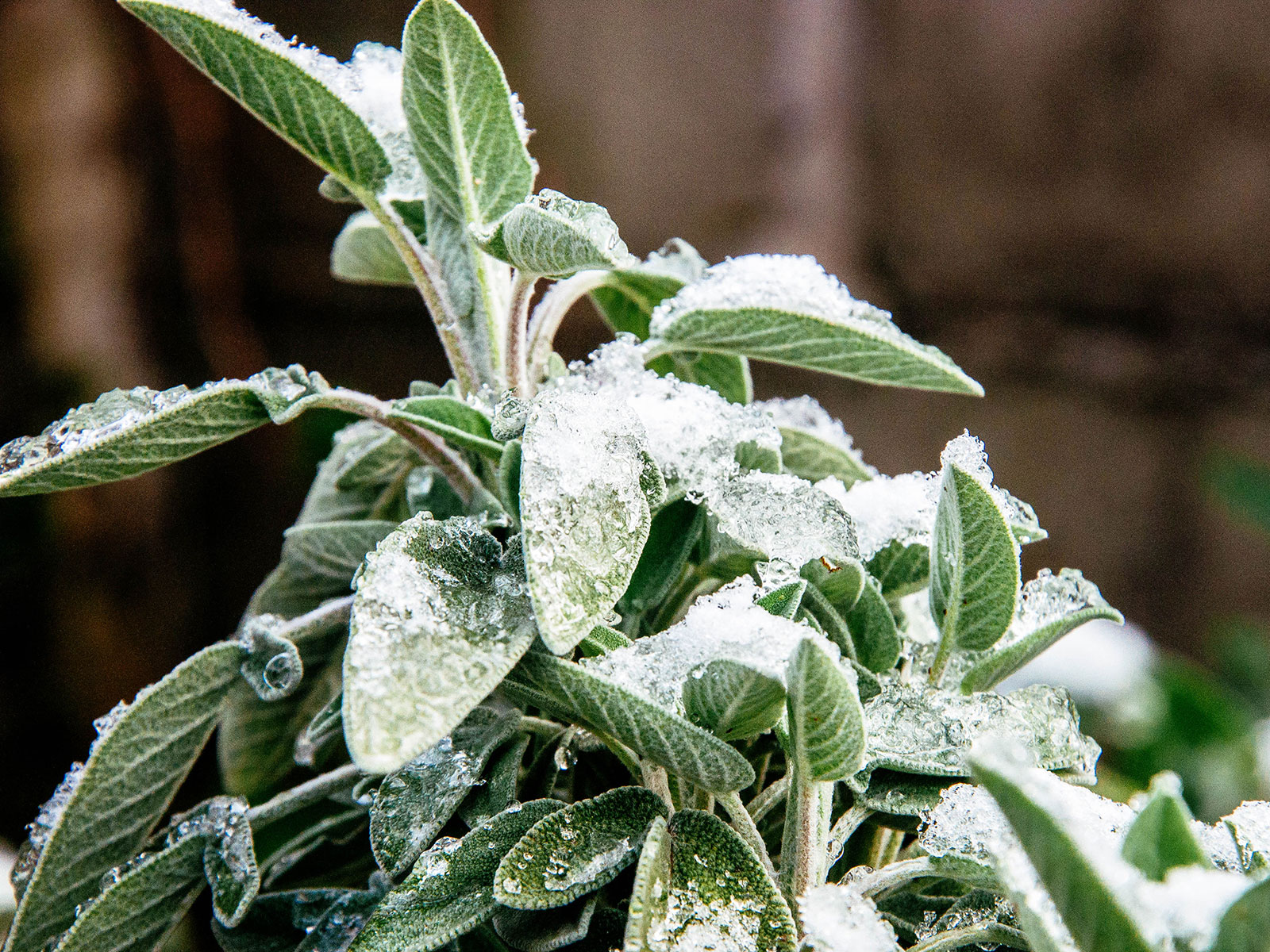Numerous the frequent herbs we develop at residence are native to the Mediterranean, which suggests in colder climates, they gained’t make it by means of frost and snow. Nonetheless are you conscious that fairly fairly a couple of culinary herbs can really overwinter (considerably with slightly little bit of safety) or die as soon as extra and return in spring?
I’ve two perennial herb beds in my zone 5 microclimate that come as soon as extra yr after yr, and all I do is mulch the beds and add a midweight frost material after the primary laborious freeze. The differ (cultivar) performs a essential place, in any case—rosemary, a type of aforementioned Mediterranean herbs, is generally hardy to zones 8 and up. Nonetheless inside the event you plan forward and plant the precise alternative, you presumably can develop rosemary year-round all one of the simplest ways proper right down to zone 5!
Disclosure: In case you retailer from my article or make a purchase order order order by means of one amongst my hyperlinks, I’ll pay money for commissions on just some of the merchandise I favor to recommend.
My favourite place to purchase reside herb crops on-line (after I’m trying to find a novel alternative) is resolve. They carry a big selection of herbs that I’ve in no way seen anyplace else! Nonetheless inside the event you need to begin your crops from seed, you probably cannot go mistaken with Botanical Pursuits.
Correct proper right here’s what I develop or have grown exterior in winter, with recommendations on defending your crops in order that they stand a greater probability of surviving the freeze.


Zone 3 herbs
These are just some of the hardiest herbs you’ll uncover all through the yard! (I’ve even picked lovage with a dusting of snow on its leaves.)
- Lovage
- Hyssop
- Russian tarragon
- Chervil
- Candy cicely
- Yarrow
- Horseradish
Zone 4 herbs
Together with the zone 3 herbs above, you may additionally develop:
- Mint
- Onion chives
- Garlic chives
- French tarragon
- Thyme
- Sage
- Variegated marjoram
- Mitsuba
- Roman chamomile
- Anise hyssop
- Sorrel
Zone 5 herbs
The rules will get longer as we change as loads as zone 5. Along with the herbs in zones 3 and 4, you presumably can develop:
- Parsley
- Oregano
- Lemon balm
- Winter savory
- Bronze fennel
- Lavender
- German chamomile
- Salad burnet
- Rosemary (with safety—strive Arp, Hill’s Hardy, or Alcade)
Zone 6 herbs
The entire stuff you presumably can develop in zones 5 and beneath, you presumably can develop in zone 6. Nonetheless you get slightly little bit of leeway correct proper right here because of the extra delicate herbs can overwinter with no frost cowl.
Chilly-hardy rosemary varieties like Arp, Hill’s Hardy, and Alcade will often make it by means of a hard frost with solely an excellent mulch layer. Inside the event that they die as soon as extra, they’ll reemerge in spring. To make sure that you the crops to remain harvestable in winter, develop them beneath a low tunnel, in a chilly physique, or in opposition to a wall, the place they income from the mirrored warmth.


How to make sure your cold-hardy herbs come as soon as extra in spring
By way of trial and error, I’ve discovered that even the hardiest herb gained’t bounce as soon as extra for 3 giant causes: lack of moisture, chilly dry air, or not ample snow. (Uncover how temperature is not a element, so long as the plant is appropriate in your zone.)
If there’s no rain all through the forecast, ensure you water your crops recurrently, even by means of winter. That is maybe the number-one motive many crops don’t make it!
The second motive is publicity to the chilly, desiccating winds of winter. Wind (and wind chill) causes fast moisture loss in plant tissue, resulting in dehydration, leaf scorch, and ultimately demise.
You presumably can avoid this frequent winter damage by watering efficiently (so your crops are capable of replenish the moisture they lose) and by utilizing defending measures, like planting windbreaks (taller shrubs or hedges spherical your herbs) or defending them with frost material.
Useful
Frost safety
Though it sounds counterintuitive, you furthermore need a substantial amount of snow to assist your crops survive the chilly! Snow is an impressive insulator that protects the roots and crowns of your herbs, nevertheless when it melts off shortly or doesn’t snow for weeks, heap on a thick layer of pure mulch. You would possibly get inventive correct proper right here (I generally use earlier Christmas boughs) or simply shield a stockpile of straw, picket chips, or pine needles to make the most of as wished.
Regularly mulch your crops efficiently, even inside the event you get snow. It helps shield weeds at bay in early spring and affords dietary nutritional vitamins to the soil because of it breaks down over winter. As shortly as a result of the native climate warms up, you’ll want to take away just some of the heavy mulch layer (so that you just solely have a pair inches on prime) and let the soil breathe a bit.
